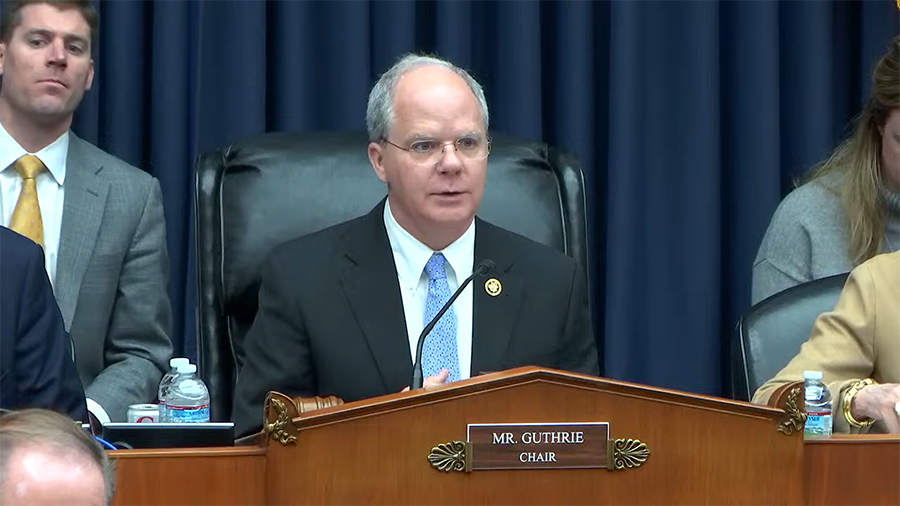Bipartisan legislation to support research into rare diseases received backing from witnesses and lawmakers during a Feb. 29 hearing of the House Energy and Commerce Health Subcommittee.
“Research and development into therapies designed to treat rare diseases is challenging, especially when it comes to measuring the safety and efficacy of drugs for a smaller patient population, making investments in rare disease therapies risky and unpredictable,” said Subcommittee Chair Brett Guthrie (R-KY). “Recognizing these hurdles, Congress has taken numerous steps over the years to better support every stage along the drug approval pipeline.”
Held on Rare Disease Day, the hearing put a focus on new legislation proposed to support research into so-called “orphan drugs,” which treat rare diseases.
The hearing reviewed 18 bills, including three supported by the Biotechnology Innovation Organization (BIO):
- The ORPHAN Cures Act (H.R. 5539) would fix a flaw in the Inflation Reduction Act (IRA) to ensure orphan drugs are exempt from price controls, even if approved for two or more indications. The IRA currently does not exempt orphan drugs from price controls if the drugs receive Food and Drug Administration (FDA) approval for more than one disease. However, that prevents the discovery of new cures. “Of the more than 280 orphan drugs approved since 2003, nearly a quarter were later approved to treat additional diseases,” BIO Chair Dr. Ted W. Love has noted.
- The Creating Hope Reauthorization Act (H.R 7384) would reauthorize the Rare Pediatric Disease Priority Review Voucher (PPRV) program, which supports treatments to address rare diseases that disproportionately impact children.
- The Maintaining Investments in New Innovation (MINI) Act (H.R. 5547) would increase the protection from IRA drug price controls for drugs made with genetically targeted technology, often referred to as complex small molecules, to 13 years post-FDA approval—instead of the nine years of protection these drugs currently receive.
Why we need to support rare disease R&D
“Rare Disease patients experience inequities in diagnosis and care, a lack of investment in research and a lack of awareness among healthcare providers,” said Rep. Nanette Barragan (D-CA). “The average time from the start of symptoms to a diagnosis of a rare disease is five years, and this is even longer for patients of color. Additionally, the majority of rare diseases do not have an FDA-approved treatment.”
The need for the ORPHAN Cures Act was mentioned by Chair Guthrie and several lawmakers at the hearing, including Reps. Diana Harshbarger (R-TN), Bob Latta (R-OH), Mariannette Miller-Meeks (R-IA), and Greg Pence (R-IN).
Rep. John Joyce, MD (R-PA) spoke of the need for both the ORPHAN Cures Act and the MINI Act.
“Both bills represent narrow and concise fixes to the IRA to ensure that research and treatments and future innovation that American patients want and American patients deserve are recognized,” he said. “These are critical pieces of legislation to the future of patient treatment and to the access to cures in the rare disease space.”
In promoting the MINI Act, which he co-sponsored, Rep. Joyce noted that the genetically targeted technologies “are still in their infancy,” so research into these drugs should not be subjected to drug price negotiations.
Rep. Barragan, who is co-sponsoring the Creating Hope Reauthorization Act, noted its importance in supporting childhood cancer research.
“Because of how few people are affected, all childhood cancers are considered rare,” she said.
Rep. Michael Burgess, MD (R-TX) also supported that bill, and noted the importance of renewing the support that Congress has given to research into rare pediatric diseases through the voucher program.
“There was a recent instance of a rare small disease company anticipating receiving this voucher and they only learned at the 11th hour that the FDA did not intend to grant the priority review voucher,” Burgess said. Uncertainty around the vouchers “adds another layer of complexity to this space.” This makes investment harder to obtain.




